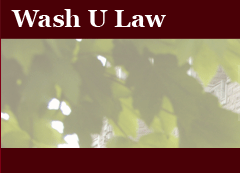Testing Whiteness: No Child or No School Left Behind?
Publication Title
Washington University Journal of Law & Policy
Abstract
Omi and Winant argue that racial formation is a “fundamental organizing principle” for all macro-social relationships, including schooling in the United States. At micro-levels, we interact with others in a variety of social and educational settings, including the conditions under which we, or our students or children, take tests, and how we use those tests to shape individual educational opportunities. At the macro-level of collectivity, Omi and Winant encourage us to understand the complex relationships of whiteness to economic, cultural and ideological structures. Today, the category of “whiteness” itself is an unstable and “decentered” complex set of social meanings constantly being transformed by political struggle. These and other sociologists encourage us to examine that struggle because today, as in the past, racial minorities “bear the heavy burden in human suffering as a result of their categorization as ‘other’ in dominant practices and ideologies.” They argue that we are at a new stage of socially based politics of racial formation. I draw on their assessment of race to consider testing and whiteness as efforts to center and cement racial categories of privilege through testing policies. In this Essay, I examine the No Child Left Behind Act of 2001 (NCLB) as a manifest social policy that imbeds racial formation practices centered around whiteness into a national movement of standardized testing. The first section of this article provides background information on the NCLB, the construction of school testing, and potential policies that advantage whiteness. The second section describes key elements of “testing whiteness” that invalidate the assumptions of NCLB and raise legal, social, and policy questions for the courts and our communities. I draw on Larry P. and the critiques of racialized testing patterns as instructive of potential judicial frameworks for these ongoing educational issues. Our legal and educational responses to NCLB may become the frame for educational policy challenges that confront public education and race dynamics over the coming decades.
Recommended Citation
Helen A. Moore,
Testing Whiteness: No Child or No School Left Behind?,
18
Wash. U. J. L. & Pol’y
173
(2005),
https://openscholarship.wustl.edu/law_journal_law_policy/vol18/iss1/8
